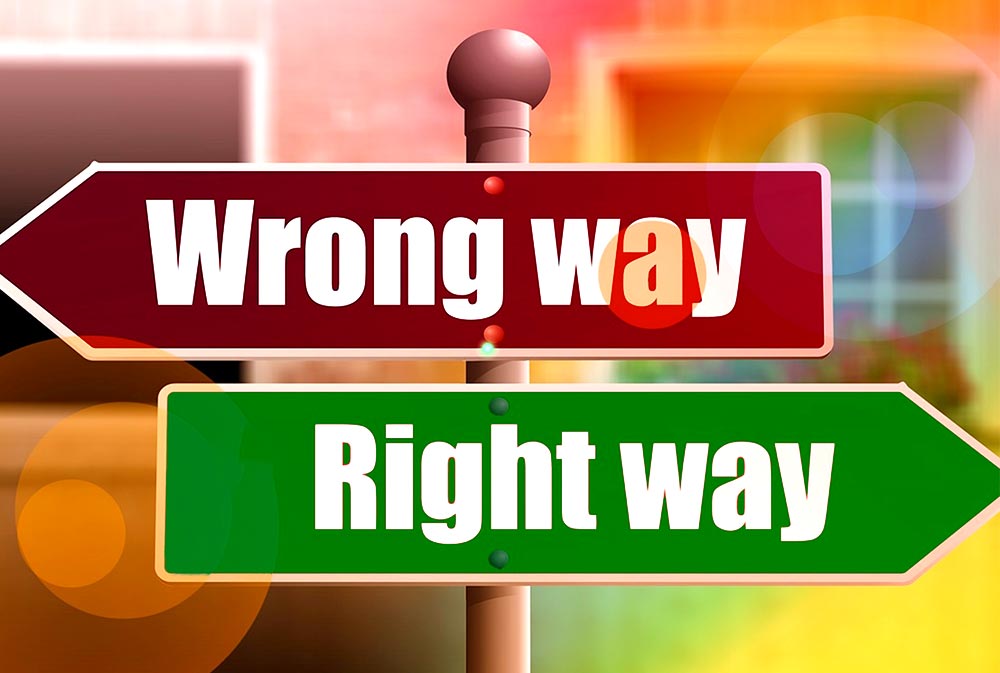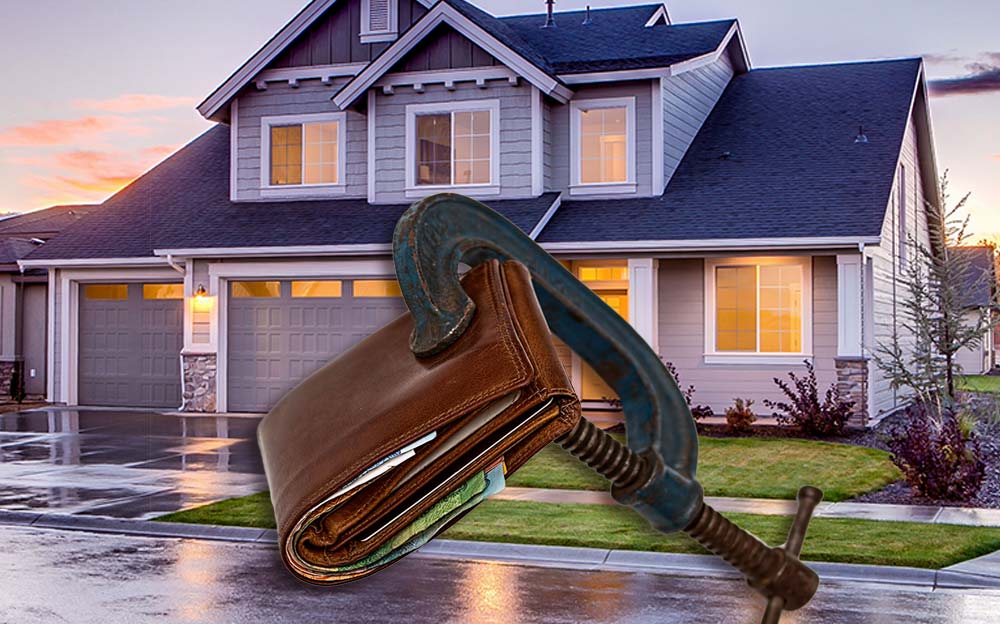10 MISTAKES PEOPLE MAKE WHEN BUYING A HOME
Reliant Realty ERA Powered Team – Thursday September 21, 2017

10 Mistakes To Avoid When Buying A House
23-year-old Alex felt 100 feet tall when he was hired by the company he desperately wanted to work for. He had pushed himself hard at school and was finally seeing the fruits of his efforts. He was also in love with Heather and dreamed of a stable and secure future (and maybe a couple of kids) with her. Before he asked her to marry him, he wanted to buy a home of his own, and make his dent in the universe.
But he had no idea what he would face. The bank wanted financial records he had never heard of before. His credit history was brand new, and he didn't know how much house he could afford.
He found a Real Estate professional to help guide him along the journey to his dream home, and prepare him for the problems he would face.
Here - in no particular order - is the same list Alex used to help him avoid the most common mistakes people make when buying a home.

Home, the spot of earth supremely blest.
A dearer, sweeter spot than all the rest.
—Robert Montgomery
1. Not Doing Proper Preparation & Research
Sure it's fun to look at listings and wander through open houses on the weekend, but if you're serious about buying - and getting the best deal - you have to prepare.
It's important to have a clear picture of your finances, your needs, and what the local neighborhoods offer before you dive into your home search.
First, get a handle on your finances. Understand your assets & liabilities, and apply for a mortgage pre-qualification and pre-approval, so you can search for a house with a solid number in mind.
Location, Location, Location
Realize too that when you buy a house, you are buying into a neighborhood. Figure out what's important to you about the kind of community you live in and not just about what you want from a property itself. Questions to ask include:
- Which school district is right for your children?
- What's the crime rate?
- Is there public transportation nearby?
- How convenient are grocery stores and shopping centers?
The Greater Nashville Area is one of the fastest growing areas in the country. It's a competitive market. Doing your research and getting prepared before starting your search means you'll be ready to grab your dream home before anyone else gets it.
2. Thinking That Owning A Home Is Cheaper Than Renting
Why pay someone else's mortgage when you can pay your own? In most cases, it's the right decision and great motivation for making the switch to home ownership. But don't make the decision solely on that.
You're not just replacing rent with a mortgage payment. You're also signing up for owner's insurance, property taxes, maintenance expenses, and the full cost of utilities.
When that dishwasher or washing machine breaks down, the repair or replacement costs come out of your wallet.
Keep maintenance in mind when calculating the full costs of owning your own home.
Closing costs are also part of the equation. While your real estate agent's commission is paid for by the seller - out of their agent's fee - you are responsible for closing costs, land transfer fees, legal fees, application fees, and mortgage insurance if you're financing more than 80% of the purchase price.
Buying a home isn’t just a matter of replacing a rental payment with a mortgage payment. Again, you’re also responsible for full utilities (which will likely cost more) and property taxes.
Get prepared by asking friends who own homes what their average utility costs and property taxes are. Get quotes for insurance, home inspections, and big-ticket items like the roof and HVAC units.
A good guideline is to budget about 1% of the home’s purchase price for annual maintenance costs. If nothing breaks, it's more fun money in your pocket for next year!
3. Choosing The Wrong Mortgage Type
Shopping for your home includes shopping for a shiny new mortgage too.
To start from a strong negotiating position, have your pre-qualification & pre-approval letters from a lender before you start searching.
Just because a bank's mortgage calculator says you can borrow a certain amount of money doesn't mean they'll give it to you when you formally apply for a mortgage.
Shop around too! Just because they know you, your home bank may not be where you find your best financing package. You hold all the cards here.
Remember, this is one of the biggest financial transactions of your life. You're the customer, and it's your job to find the best mortgage and loan service for your situation.
Let competition work to your advantage. Independent mortgage brokers can shop your loan to a range of lenders, and find the best rates based on your credit profile.

4. Blowing Through Your Budget
You were smart, did your prep work, and got pre-approved. You have a firm grasp on your budget and what you can comfortably afford. It's time to go house hunting.
Yes, that more expensive turn-key property looks much better than the property you can afford that needs a little TLC. What's a couple thousand more when you're dealing with big numbers anyway?
Those couple thousand can become a big deal. Not just over the long term in interest charges over the life of your mortgage, but in the short term if your circumstances turn south.
If being able to afford that more expensive property means you're allocating more than the recommended 30% of gross income to housing, you're moving into "unaffordable" territory.
Don't be tempted to spend more than you can comfortably - and sensibly - spend. Doing that will make paying all of your other bills painful if your income drops.
5. Skip The Home Inspection
You wouldn't buy a used car without looking under the hood. Don't buy your home without getting an inspection.
It may look like the property is in great shape, but the fact that we need professional home inspectors in the first place, tells us that we need a trained eye to spot major – but hidden - problems with the house. You don't want to move in only to get hit with structural issues that could bankrupt you.
A home inspection is the cheapest insurance you will ever buy.
Reputable professionals can spot and diagnose hidden problems that are major repairs and alert you to potential costs that you'll be on the hook for after closing.
Use the home inspection report they provide to strengthen your negotiating position. You can ask the seller to repair any issues before closing or reduce the home’s purchase price and have them fixed out of pocket after closing. But if you don't have your new home inspected, you won't have these options once the contracts are signed.

6. Not Getting It In Writing
Those stainless steel kitchen appliances and the killer dining room table you loved in the showing aren't automatically part of the deal when you make an offer.
You may think that features like window treatments, hot tubs, light fixtures, shower and bath fixtures, ceiling fans, and big appliances such as washers and dryers come with the house, but the seller may have a completely different idea about what they're taking with them.
If you have your heart set on that modern light fixture in the master bedroom, write it into your contract and ask the seller if they can leave it. You might just score a deal on a sweet fixture!
7. Putting Down The Smallest Down Payment You Can Get Away With
While you may be able to purchase a house with less than a 20% down payment, there are some things to consider.
When a buyer finances 80% or more of a property's purchase price, the loan is technically considered high-risk. Most lenders require private mortgage insurance (PMI) to protect themselves should the borrower default on the payments.
Millions of borrowers start their home purchase with a down payment lower than 20%. When these loans reach the 20% principal level, PMI typically drops off the monthly payment, and the borrower pays a little less each month out of pocket.
So, while it can be done with less, if you can afford to put a down payment as close to 20% as possible. It saves you a few hundred dollars per month, which can be applied to your principal rather than insurance and reduce how long it takes you to pay off the mortgage.
8. Falling In Love With A House
In real estate, like in poker, it's best to play your cards close to the chest. If you think a house is ideal, don’t let the seller’s agent know.
Their job is to negotiate the highest price possible for the seller.
If they know they're representing a sweet property they'll be in there setting up conditions for a bidding war.
If that "perfect" house means maxing out - or extending - your budget, keep looking. Remember that even in a competitive market, your dream house will show up at your ideal price. Take your time.
9. Doing It Yourself
As mistake #8 pointed out, sellers have an agent on their side. They have a professional negotiator whose job it is to protect their best interests and advise them on a strategy to get the house sold.
You're a smart buyer who’s done their homework and read up on the home buying process. This may not even be your first property. But you wouldn't go to court without a lawyer who has the expertise to win your case.
That's why it's critical to partner with a professional buyer’s agent to represent your interests. And, given that their fee is paid for out of the seller's commission, it's a smart decision. Get a pro on your team, and the home buying journey will be smooth.
10. Letting "The Real Estate Market" Influence Your Decisions
All markets are cyclical: sometimes it's a buyer’s market, and other times sellers have the advantage.
But don't make your buying decisions based on what you hear in the media about the market. Your decision should rest on when it's the right time to buy based on your needs and situation.
Waiting for the "best" or "right" time in the market to buy your home, instead of when your circumstances are right, puts you in a less than ideal position both financially and personally.
Organize and evaluate your finances, know your budget, and think through your current and future needs. Base your buying decision on your future lifestyle goals, and not on what the short-term market fluctuations suggest.

Conclusion
Now you know 10 of the biggest mistakes people make in the home buying process.
You're prepared for the pitfalls and ready to navigate your neighborhood choices.
This is where the fun begins. Searching homes for sale is a lot of fun, plus you get to peek into different decorative styles, and 'feel' the atmosphere of the houses in a neighborhood.
Grab a cool drink, sink into your favorite chair, and browse away.
For more tips, read 11 Steps to Buying a House: Your Ultimate Guide to Buying a House in Tennessee.
Ask your network of friends and family for recommendations, and take some time to choose the best real estate agent for you.
Check out these other popular links
Additional Resources if You're Moving to Tennessee
Searching for a house can be both exciting and stressful. Here are online resources to help you plan your move.
- The Nashville Chamber of Commerce "Getting Established" page is a great resource for information on a variety of topics and is a great place to start.
- Department of Motor Vehicles instructions to re-register your out of state driver's license and vehicle.
- Check out the neighborhood! Read up on Nashville's eclectic neighborhoods and find your ideal vibe.
- Have kids? Learn about schools and their ratings before you move.
